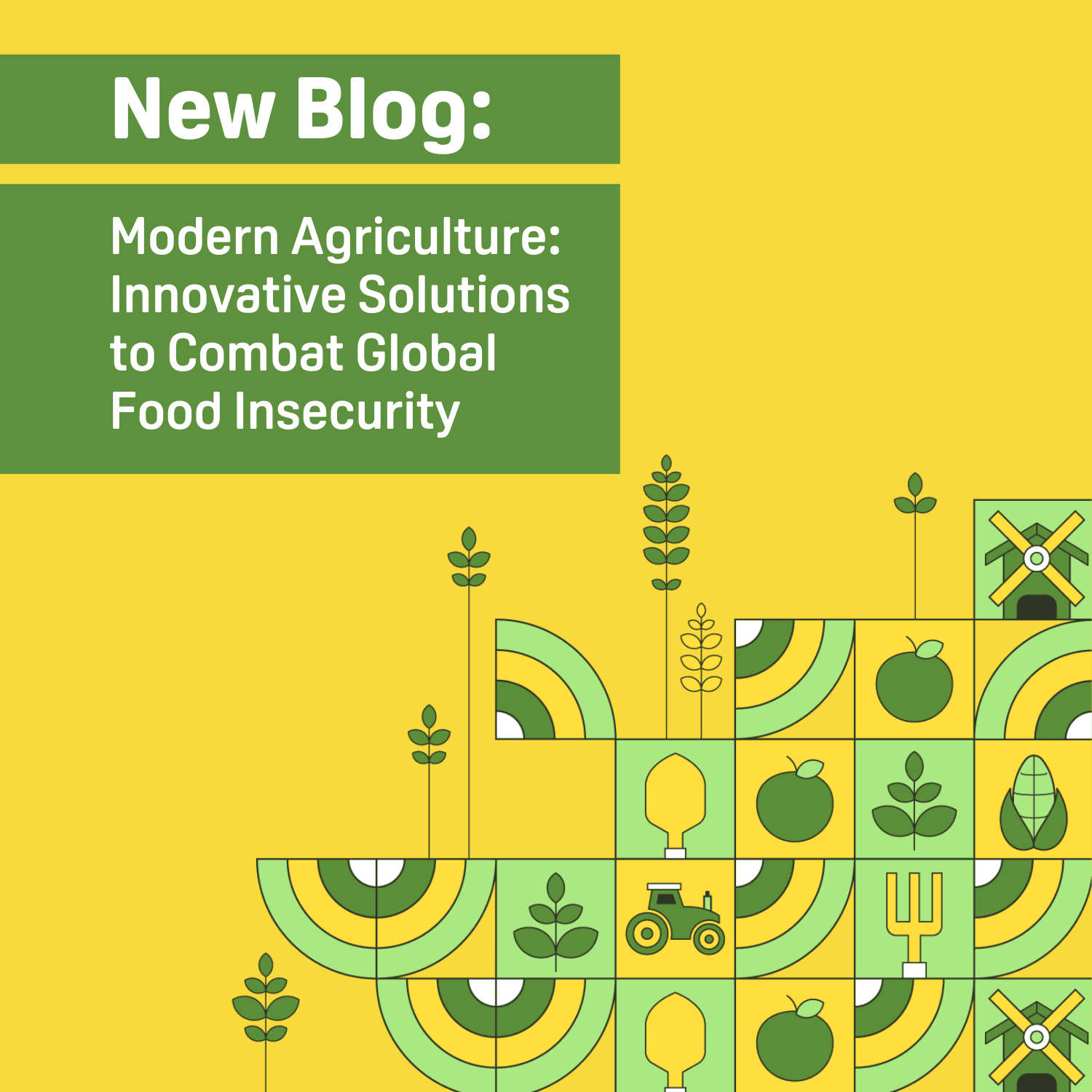

Modern Agriculture: Innovative Solutions to Combat Global Food Insecurity
Modern agriculture combats global food insecurity with precision agriculture, sustainable practices, and biotechnology. Tools like IoT, automation, and crop innovations optimize resource use, enhance resilience, and ensure stable food supplies. By integrating smart technologies, agribusinesses address challenges like climate change and resource scarcity, paving the way for a sustainable food future.
Published on 21 January 2025
Modern Agriculture: Innovative Solutions to Combat Global Food Insecurity
Global food insecurity is not just a challenge, but a pressing and urgent issue as the world grapples with the dual crises of population growth and climate change. By 2050, the global population is expected to reach 10 billion, requiring a 70% increase in food production. Modern agriculture has emerged as a critical force in combating these challenges through innovative solutions such as precision agriculture, sustainable farming practices, and agricultural biotechnology. This blog explores how these strategies contribute to ensuring a stable food supply for future generations.
The Urgent Challenge of Global Food Insecurity
Food insecurity, the inconsistent access to adequate, safe, and nutritious food necessary for a healthy life, remains one of the most pressing global challenges. The phenomenon stems from an interplay of complex factors that span socioeconomic, political, environmental, and resource-based domains.
From a socioeconomic perspective, disparities in income distribution, poverty, and inadequate infrastructure limit individuals' ability to acquire food. Political instability, including conflicts and governance failures, disrupts agricultural production and supply chains, compounding the challenge. Environmentally, the effects of climate change on food supply are profound, as rising temperatures, shifting weather patterns, and increased frequency of extreme events such as floods, droughts, and hurricanes devastate crops and diminish yields.
Resource scarcity, particularly water scarcity in agriculture, adds another layer of complexity. With increasingly erratic rainfall patterns, many agricultural systems face unreliable water supplies. Drought conditions, intensified by climate change, significantly impair the productivity of rain-fed farming systems, which many developing regions rely on heavily.
Population growth and food demand further strain the agricultural sector. As urban areas expand, arable land diminishes, requiring innovative approaches to maintain productivity. Tackling global food insecurity requires a holistic strategy incorporating technological advancements, sustainable practices, and collaborative efforts across sectors. Modern agriculture, equipped with data-driven agriculture and smart farming tools, is pivotal in addressing these challenges.
The multifaceted nature of global food insecurity requires an integrated approach that considers these interconnected drivers. Solutions must combine technological innovation, sustainable resource management, and international cooperation to address both immediate needs and long-term vulnerabilities. This systemic perspective provides the foundation for exploring how modern agricultural solutions can effectively combat food insecurity.
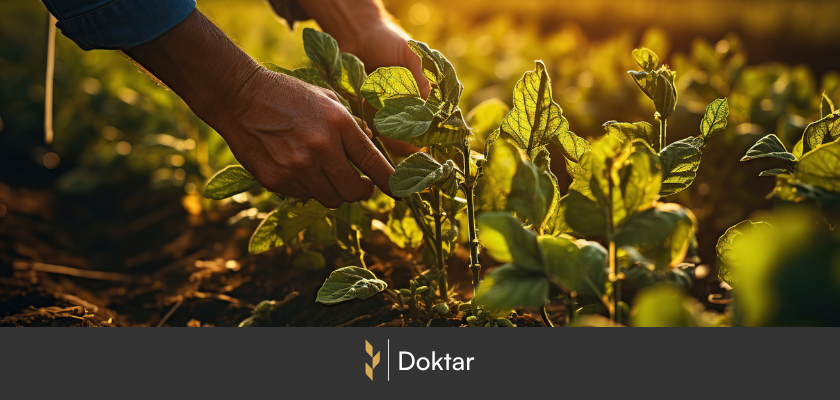
Source: Canva
Precision Agriculture: Optimizing Crop Yields with Technology
Precision agriculture is at the forefront of modern farming. It integrates advanced technologies such as IoT, remote sensing, and data analytics to optimize crop management. Farmers can make informed, data-driven decisions that boost productivity while conserving critical resources by closely monitoring variables like soil moisture, temperature, and plant health. Doktar’s precision agriculture solutions, such as Orbit and SoilScanner, are prime tools that provide actionable insights for enhanced farm management.
One of the standout contributions of IoT in agriculture is the ability to track soil health and crop conditions in real time. Devices like Doktar’s Filiz Agricultural Sensor Station monitor essential parameters, including soil moisture and temperature, ensuring water and nutrients are applied only when and where they are needed. This precision improves water use efficiency and reduces wastage, directly contributing to sustainable farming practices. Additionally, remote sensing for crop management, integrated into Doktar’s Orbit Field Scouting App, allows farmers to detect stress areas within their fields, whether due to nutrient deficiencies, pest activity, or water shortages. Addressing these issues promptly ensures uniform growth and optimal yields.
Automation is another cornerstone of precision agriculture. From autonomous tractors to drone-assisted planting, automation in agriculture reduces labor costs, improves operational efficiency, and minimizes errors. Doktar’s Variable Rate Application (VRA) tool, a feature within Orbit, divides fields into productivity zones based on satellite imagery and soil data. This enables farmers to allocate resources such as fertilizers and water with pinpoint accuracy, minimizing overuse and promoting sustainability.
Together, these technologies empower farmers to adapt to dynamic agricultural conditions, mitigate risks associated with global food insecurity, and achieve higher productivity levels. By leveraging Doktar’s smart farming tools, agribusinesses can optimize their operations and set benchmarks for innovation and sustainability in the global agricultural sector.
Sustainable Farming Practices to Ensure Long-Term Food Security
Sustainable agriculture methods prioritize the long-term health of the environment while meeting food production demands. Practices such as regenerative agriculture, conservation tillage, and organic farming techniques are fundamental in preserving natural resources and enhancing soil health monitoring.
Regenerative agriculture practices prioritize rebuilding organic matter in soil and enhancing biodiversity, which strengthens resilience against climate extremes and fosters long-term soil health. By improving soil structure, increasing water retention, and supporting beneficial microorganisms, these practices create a robust foundation for sustainable food production.
One of the key strategies in regenerative agriculture is crop rotation, which maintains soil fertility by alternating nutrient-demanding crops with soil-enriching plants. This reduces the risk of soil degradation while minimizing the buildup of pests and diseases. Additionally, integrated pest management (IPM) plays a vital role in sustainability by reducing the reliance on chemical pesticides through targeted, eco-friendly pest control methods.
Doktar’s PestTrap exemplifies how technology can enhance IPM strategies. PestTrap, an IoT-powered pest monitoring system, uses pheromone-based lures and AI image recognition to detect and analyze pest populations with precision. This enables farmers to identify pest hotspots early and intervene only when necessary, preventing widespread infestations. By eliminating unnecessary pesticide applications, PestTrap not only reduces environmental impact but also protects beneficial insects like pollinators, which are critical for crop productivity.
This targeted approach aligns perfectly with regenerative principles, as it ensures that pest management efforts support overall ecosystem health. Furthermore, PestTrap’s automated data collection saves farmers time and resources, allowing them to focus on other regenerative practices like conservation tillage or agroforestry. By integrating tools like PestTrap, farmers can achieve more efficient, sustainable, and eco-conscious agricultural operations.
Another critical aspect is water-efficient irrigation, ensuring water resources are used judiciously. Systems like Doktar’s FlowMeter help farmers monitor water usage by providing real-time data on flow rates and water consumption, enabling precise irrigation management. By identifying inefficiencies such as leaks or over-irrigation, FlowMeter ensures optimal resource allocation, reduces operational costs, and prevents water waste. Additionally, its integration with smart farming platforms allows farmers to track usage trends and make data-driven decisions, further supporting climate-smart agriculture strategies and long-term sustainability.
Agroforestry systems integrating trees with crops or livestock are also gaining traction as a sustainable farming model. These systems enhance biodiversity in agriculture, improve soil stability, and provide additional income sources, making them a versatile solution for combating agricultural challenges while addressing food security.
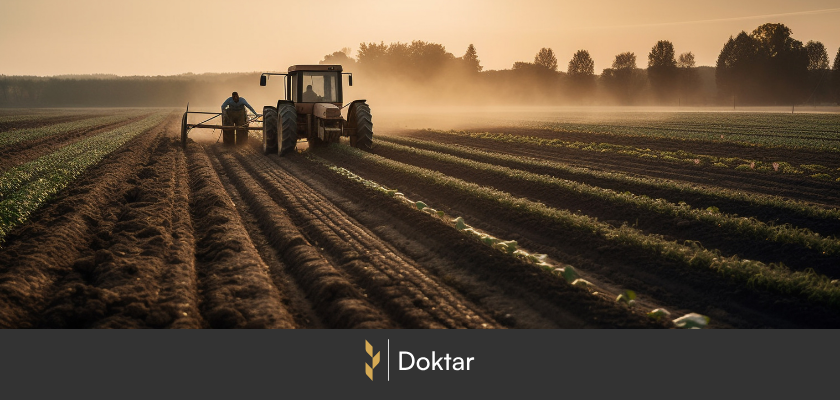
Source: Canva
Innovations in Agricultural Biotechnology for Global Food Production
Agricultural biotechnology has transformed crop cultivation by ensuring resilience against biotic and abiotic stressors. Biotech solutions such as genetically modified organisms (GMOs) and gene editing have enabled crops to withstand challenges like drought, pests, and diseases, ensuring consistent yields despite adverse conditions. These innovations have been instrumental in addressing global food insecurity, particularly in regions prone to extreme environmental stress.
However, GMOs are not without controversy. Critics argue that the widespread adoption of GMOs may lead to unintended consequences, such as the potential for gene flow to non-target species, which can alter ecosystems. Additionally, the reliance on herbicide-resistant GMOs has sometimes contributed to the overuse of herbicides, leading to the development of resistant weeds. There are also concerns about the monopolization of seed markets by a few large corporations, which can limit access to diverse crop varieties for smaller farmers.
Despite these challenges, when used responsibly and with proper regulatory oversight, GMOs can offer significant benefits for food security and sustainable agriculture. Innovations in gene editing, such as CRISPR, aim to address some of these concerns by enabling precise modifications that reduce unintended environmental impacts. Striking a balance between technological advancement and ecological stewardship is essential for maximizing the potential of agricultural biotechnology while mitigating its risks.
For instance, drought-tolerant crop varieties address the challenges of water scarcity and agriculture, providing a reliable food supply in arid regions. Similarly, pest-resistant crops reduce the need for chemical pesticides, promoting sustainable agriculture methods while safeguarding the environment.
Advancements in biotechnology also improve nutritional profiles. Biofortified crops, such as golden rice enriched with vitamin A, address micronutrient deficiencies in vulnerable populations, tackling one of the root causes of food insecurity. These innovations demonstrate how modern agriculture technology bridges the gap between limited resources and growing demands, ensuring that global food production keeps pace with population growth.
Frequently Asked Questions
What is food insecurity, and why is it a global concern?
Food insecurity refers to the lack of consistent access to adequate and nutritious food. It affects over 800 million people globally and is driven by factors like poverty, political instability, and climate change. The rising population further exacerbates the issue as agricultural systems struggle to meet increased demand. Addressing food insecurity is critical for global health, economic stability, and social equity.
How does precision agriculture help farmers increase productivity?
Precision agriculture uses advanced tools like IoT, remote sensing, and automation not just to monitor and manage crops, but to do so accurately and efficiently. By analyzing real-time data on soil, water, and plant health, farmers can optimize resource use, improve yields, and reduce waste. This approach enables sustainable food production and minimizes environmental impact, reassuring us about the efficiency of modern farming practices.
How does agricultural biotechnology improve crop resilience?
Agricultural biotechnology enhances crop resilience by developing traits like drought tolerance, pest resistance, and improved nutrient efficiency. These advancements help crops thrive under challenging conditions, ensuring stable yields. By reducing dependency on chemical inputs and addressing specific regional challenges, biotechnology supports sustainable agriculture and contributes to global food security.
Conclusion
Modern agriculture is at the forefront and in charge of combating global food insecurity through innovative solutions. Precision agriculture, sustainable farming practices, and agricultural biotechnology are not just tools but beacons of hope that collectively address the challenges of population growth, climate change, and resource scarcity. Agribusinesses can ensure a secure and sustainable food future by integrating tools like Doktar’s smart farming solutions. As the agricultural sector evolves, these innovations will remain pivotal in fostering resilience, productivity, and sustainability.
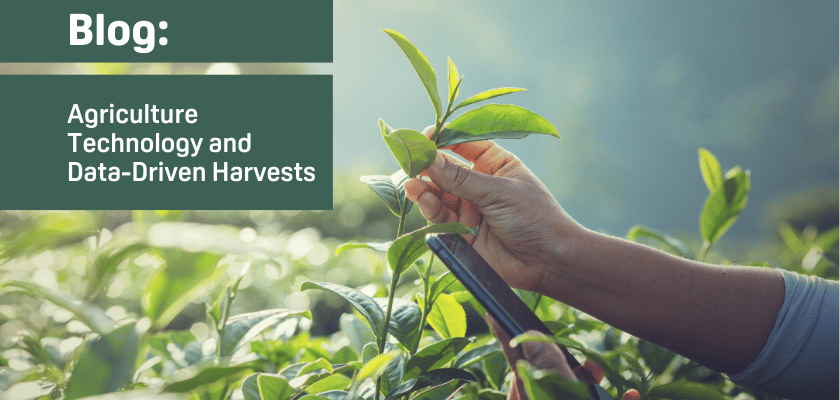
Agriculture Technology and Data-Driven Harvests
The convergence of agriculture technology and data-driven solutions represents the next frontier of innovation in farming. With companies like Doktar leading the way, farmers can leverage these advancements to improve productivity, reduce environmental impact, and secure a more sustainable future for agriculture. Whether through precision agriculture, sustainable agriculture, or cutting-edge smart agriculture technology, the future of farming is bright, and data is at the heart of this transformation. Technology's positive impact on this future should inspire and motivate us all.
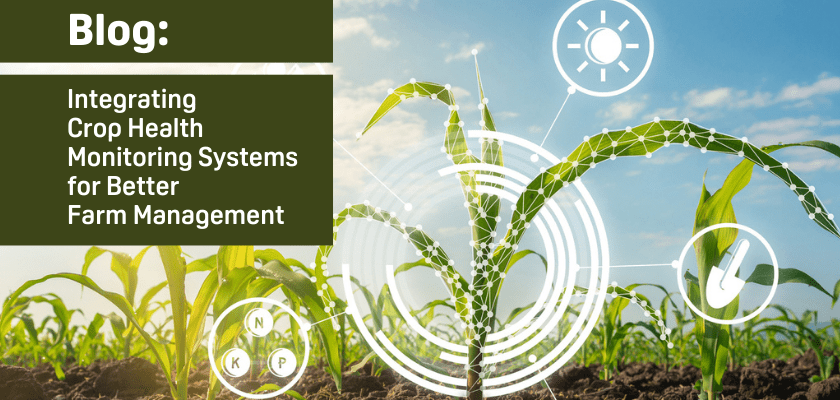
Integrating Crop Health Monitoring Systems for Better Farm Management
Crop health monitoring systems revolutionize modern agriculture by enabling real-time insights into plant health, reducing losses, and promoting sustainability. Tools like Doktar’s CropMap and Orbit integrate advanced technologies, empowering farmers with data-driven decisions. By enhancing efficiency and sustainability, these systems are essential for future-proofing agricultural operations.
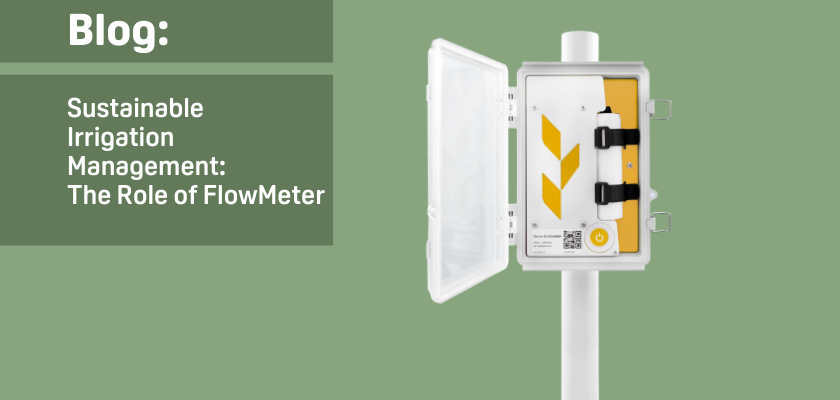
Sustainable Irrigation Management: The Role of FlowMeter
Flow meters transform irrigation by enabling precise water measurement, reducing waste, and optimizing crop yields. Tools like Doktar’s FlowMeter empower farmers to enhance water-use efficiency, conserve resources, and lower costs. By integrating flow meters into modern farming, agribusinesses achieve sustainable irrigation solutions, address environmental challenges, and ensure long-term agricultural resilience.
